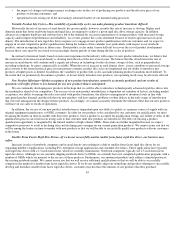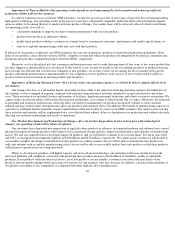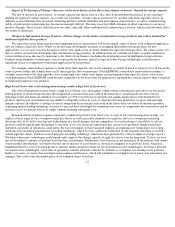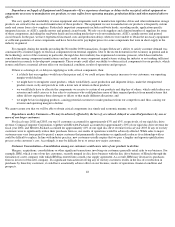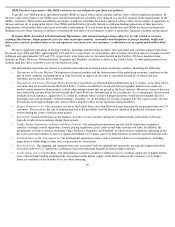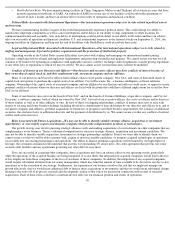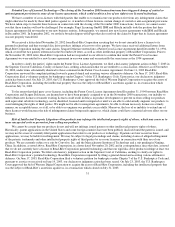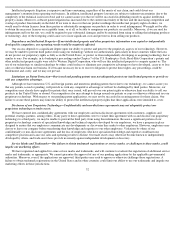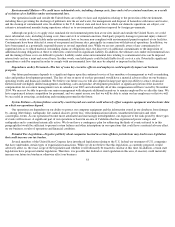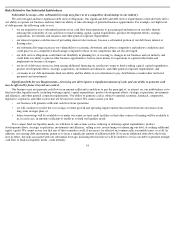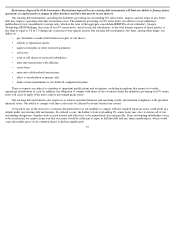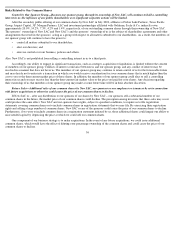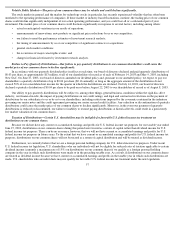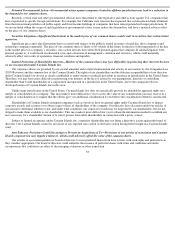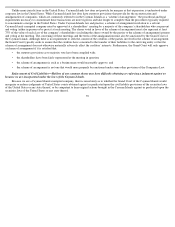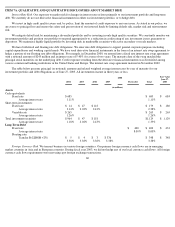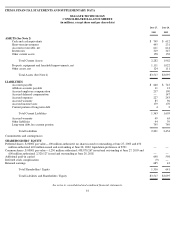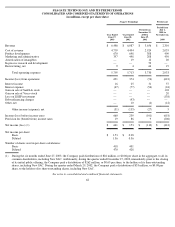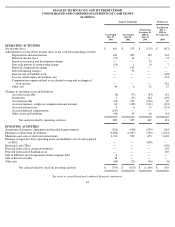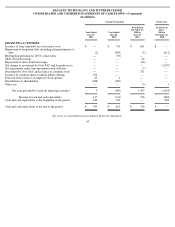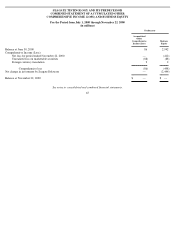Seagate 2002 Annual Report Download - page 60
Download and view the complete annual report
Please find page 60 of the 2002 Seagate annual report below. You can navigate through the pages in the report by either clicking on the pages listed below, or by using the keyword search tool below to find specific information within the annual report.
Restrictions Imposed by Debt Covenants—
Restrictions imposed by our existing debt instruments will limit our ability to finance future
operations or capital needs or engage in other business activities that may be in our interest.
Our existing debt instruments, including the indenture governing our outstanding 8% senior notes, impose, and the terms of any future
debt may impose, operating and other restrictions on us. The indenture governing our 8% notes limits our ability to incur additional
indebtedness if our consolidated coverage ratio, which is the ratio of the aggregate consolidated EBITDA of our subsidiary, Seagate
Technology HDD Holdings, the issuer of our 8% senior notes, and its restricted subsidiaries, to the total interest expense of those entities, is
less than or equal to 3.0 to 1.0 during any consecutive four-quarter period. Our existing debt instruments also limit, among other things, our
ability to:
•
pay dividends or make distributions in respect of our shares;
•
redeem or repurchase shares;
•
make investments or other restricted payments;
•
sell assets;
•
issue or sell shares of restricted subsidiaries;
•
enter into transactions with affiliates;
•
create liens;
•
enter into sale/leaseback transactions;
•
effect a consolidation or merger; and
These covenants are subject to a number of important qualifications and exceptions, including exceptions that permit us to make
significant distributions of cash. In addition, the obligation to comply with many of the covenants under the indenture governing our 8% senior
notes will cease to apply if the notes achieve investment grade status.
Our existing debt instruments also require us to achieve specified financial and operating results and maintain compliance with specified
financial ratios. Our ability to comply with these ratios may be affected by events beyond our control.
A breach of any of the restrictive covenants described above or our inability to comply with the required financial ratios could result in a
default under our existing debt instruments. If a default occurs, the holders of our outstanding 8% senior notes may elect to declare all of our
outstanding obligations, together with accrued interest and other fees, to be immediately due and payable. If our outstanding indebtedness were
to be accelerated, we cannot assure you that our assets would be sufficient to repay in full that debt and any future indebtedness, which would
cause the market price of our common shares to decline significantly.
55
•
make certain amendments to our deferred compensation plans.


